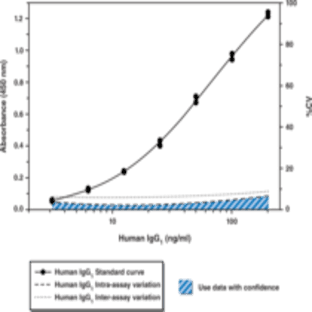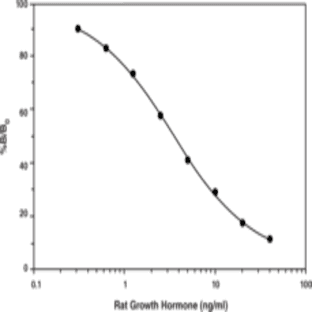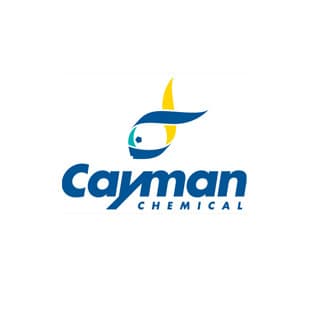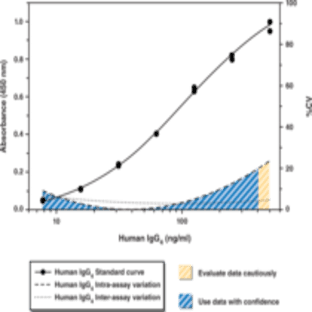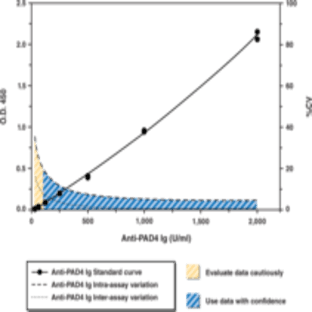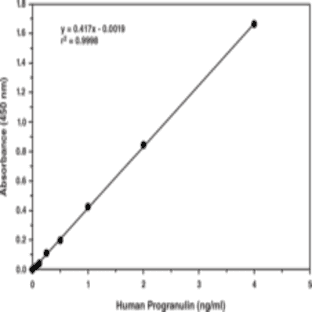
Supplier:
Cayman Chemical CompanyCat no: 600130
ATF2 (Phospho-Thr69,71) Transcription Factor Assay Kit
Prices direct from Cayman Chemical Company
Quick response times
Exclusive Biosave savings/discounts
SPECIFICATIONS
Catalog Number
600130
Form
96 Well
P Type
Assay Kits|Transcription Factors|Nuclear Receptors|Intracellular Signaling
Weight
0
Storage Temp
-80
Shipping Temp
-80
Additional Info
ATF2 (Activating Transcription Factor 2) is a sequence-specific DNA-binding protein belonging to the bZIP family of transcription factors that bind with high affinity to the octameric cyclic AMP-responsive element (CRE) in the promoter region of target genes. ATF2 mediates both transcription and DNA damage control through its phosphorylation/activation in response to inflammatory cytokines, UV irradiation, alkylating compounds, and other cellular stressors. The activated Phospho-Thr69,71 species of ATF2 (pThr69,71 ATF2; phosphorylated at both Thr69 and Thr71) is specifically mediated by JNK/p38. phospho-Thr69,71 ATF2 can form homodimers or selective heterodimers with other members of the ATF/CREB family including Fos, Fra2, c-Jun, CREB and ATF1, yielding a diverse array of DNA-binding complexes which contribute to regulatory specificity among bZIP family proteins. Recent studies implicate the ATF/CREB family of transcription factors in key cellular processes including cell cycle control, drug resistance, apoptosis, tumorigenesis, and insulin biosynthesis. Cayman's ATF2 (Phospho-Thr69,71) Transcription Factor Assay is a non-radioactive, sensitive method for detecting specific transcription factor DNA binding activity in nuclear extracts. A 96-well enzyme-linked immunosorbent assay (ELISA) replaces the cumbersome radioactive electrophoretic mobility shift assay (EMSA). A specific double-stranded DNA (dsDNA) sequence containing the cAMP-response element (CRE) is immobilized onto the wells of a 96-well plate. ATF2 contained in a nuclear extract, binds specifically to the CRE. The activated ATF2 transcription factor complex is detected by addition of a specific primary antibody directed against the phospho-Thr69,71 epitope on ATF2. A secondary antibody conjugated to HRP is added to provide a sensitive colorimetric readout at 450 nm.
Applications
ELISA, IF, IP, WB
Hosts
Rabbit
Applications
ELISA, IP, WB
Hosts
Rabbit
Latest promotions
Spend less time on DNA cleanup so you can do more science. The MSB Spin PCRapace is the fastest way to purify your DNA from PCR, restriction digestion, and...
New brilliant antibodies, and new lower prices!For flow cytometry reagents in general, \"bright is better.\" The violet-excitable BD Horizon™ BV421 and...
As an incentive to qualify our BSA, we are offering a 20% discount when you purchase your first 100g, 500g or 1000g of any grade of Bovine Serum Albumin....
It is not every day that you are given something for nothing. We are giving away additional spectrophotometer software.Cecil Instruments have enhanced the...
Did your supplier increase the price of Fetal Bovine Serum? Did they substitute the US Origin with USDA? Well say no more! Innovative Research is still...
For the past decade scientists have extensively used ATS secondary toxin conjugates to make their own targeted toxins for in vitro use.The ability to combine...
We're so sure that you'll prefer Cayman Assay kits over your present brand that we're willing to give you a free assay kit to prove it!
10% Discount on 2 Rabbit Polyclonal Antibody Service. With over 20 years experience, SDIX has developed into the premier US custom antibody producer,...
Bulk Cytokines with Custom Vialing.20 - 50% off cytokines, growth factors, chemokines and more...For a limited time Cell Sciences is offering substantial...
Jenway’s 73 series spectrophotometer range provides four models with a narrow spectral bandwidth of 5nm and an absorbance range of –0.3 to 2.5A,...
Are you planning to have a customised antibody made for your research?Since 2000, Everest has been producing a catalog containing thousands of affinity...
Top suppliers
United States Biological
230753 products
Carl Zeiss Microscopy
27 products
Promega Corporation
11 products
Panasonic Healthcare Company
5 products
Life Technologies
1 products
Nikon Instruments Europe
11 products
Olympus Europa Holding GmbH
3 products
Leica Microsystems, Inc.
10 products
GE Healthcare Life Sciences
2 products
Tecan Trading AG
19 products
Beckman Coulter, Inc.
1 products
AB SCIEX
3 products
BD (Becton, Dickinson and Company)
1 products
RANDOX TOXICOLOGY
5 products
Randox Food Diagnostics
6 products










